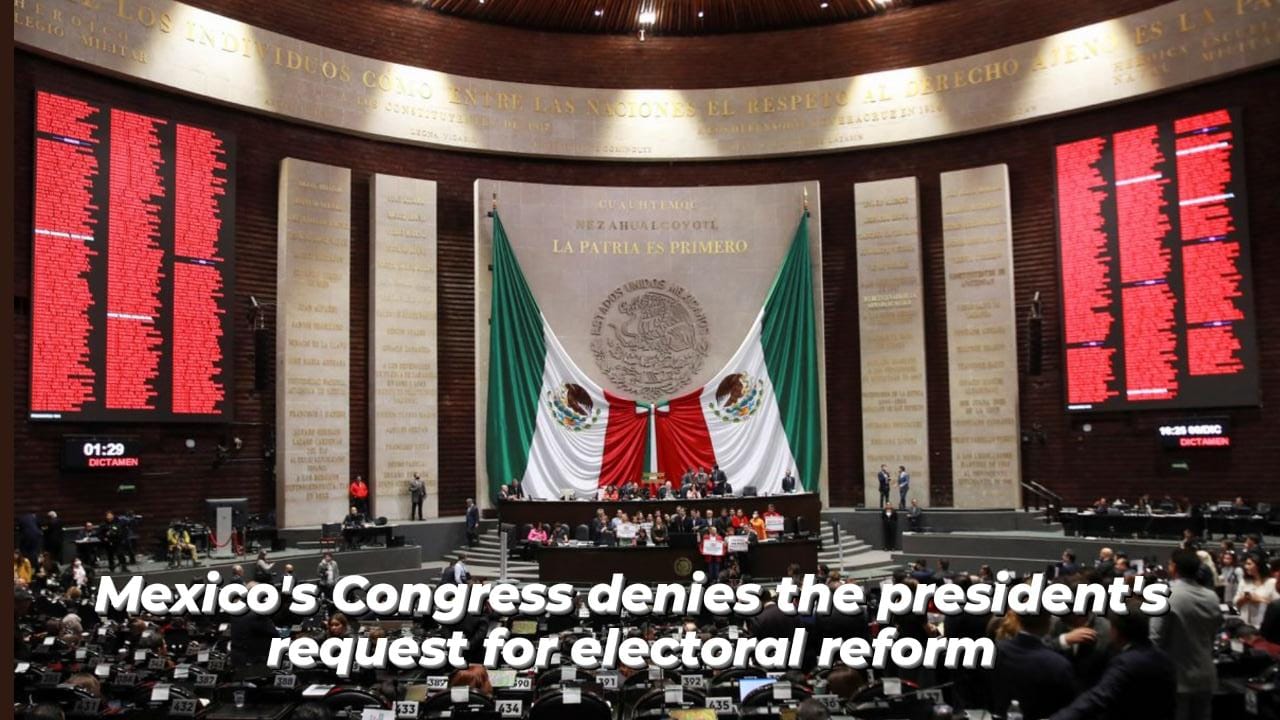
Mexico’s Congress denies the president’s request for electoral reform.
A contentious electoral reform supported by the president was rejected by the lower house of Congress in Mexico on Tuesday after it was claimed that it might jeopardise the nation’s electoral independence.
The majority party and its allies fell short of the two-thirds majority required to pass the bill, which sought to change the National Electoral Institute (INE) into a smaller and more powerful body of elected officials along with other political changes, with 269 votes in favor, 225 votes against, and one abstention.
Even so, hours earlier, President Andres Manuel Lopez Obrador issued a new proposal to the lower chamber, beginning an alternative path to get his reform passed. This excludes constitutional amendments and hence just needs the simple majority the ruling coalition now enjoys.
The new bill’s main goal is to redefine and reorganise the INE’s administrative responsibilities while also closing offices to save $150 million annually. This is in line with expectations, and it is also a little less ambitious.
The political opposition viewed the defeated measure as a threat to democracy, and groups like Human Rights Watch claimed that the ‘regressive’ proposal jeopardised the future of ‘free and fair’ elections.
AMLO, the abbreviation for Lopez Obrador, has defended his idea as a means of enhancing democracy and minimising the impact of economic interests on politics.
Tens of thousands of people protested the president’s election reform in the middle of November, which sparked the president to lead a countermarch in favour of it.

Post Your Comments